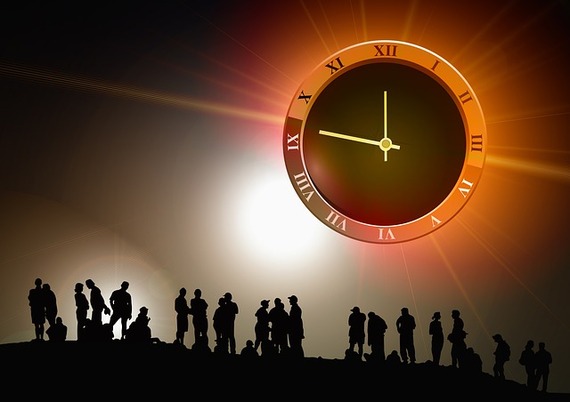The following is a guest post written by my friend and colleague, Jerry Cappel.
Have you heard of the term, "Body Burden"? It is a term that describes the impact of the accumulation of toxins in our bodies - the pollution that permeates everyone in the world. You carry a certain level of "body burden" just from the fact that you breathe air, walk on carpets, cross streets, eat food, drink water and have permeable skin.
In 2005, a group of researchers at two major laboratories tested umbilical cord blood from 10 babies born in August and September of 2004 in U.S. hospitals. The 10 children in this study were chosen randomly, from among 2004's summer season of live births from mothers in the Red Cross' volunteer national cord blood collection program. They were just a random, American sample of blood collected by the Red Cross after the cord was cut.
The tests on the umbilical cord blood of these 10 children revealed some 287 chemicals found in the blood among them. They harbored pesticides, consumer product ingredients, and wastes from burning coal, gasoline, and garbage. Among the chemicals were eight perfluorochemicals used as stain and oil repellants in fast food packaging, clothes and textiles, dozens of widely used flame retardants and their toxic by-products; and numerous pesticides. Of the 287 chemicals detected, 180 are known to cause cancer in humans or animals, 217 are toxic to the brain and nervous system, and 208 cause birth defects or abnormal development in animal tests. That 2005 study represents the first reported cord blood tests for 261 of the targeted chemicals and the first reported detections in cord blood for 209 compounds. Others have followed since. The news has not improved. And the further problem is that the dangers of pre- or post-natal exposure to this complex mixture of carcinogens, developmental toxins and neurotoxins are even less studied.
In short, we live in a time where we are born polluted.
And it is such a quiet, invisible pollution, isn't it? It's not like smoke from a smokestack or dead fish by the side of a river. Births still look like births. Babies still smell like babies. It's hard to know what time it is about this - whether there is urgency or not, whether we should be doing something now or waiting for a better time.
That's how it often is, you know. The political and social debate surrounding these kinds of things is not really about whether this is good or bad - no one likes pollution. The debate is around what time it is - how urgent and pressing? How much priority compared to other things? How demanding of action?
This brings to mind an encounter Jesus had in Herod's temple with his disciples. In Luke 21, we find a crowd of people and his disciples admiring the temple - Herod's beautiful temple, built with stones literally as large as busses - 10 feet high, 20 feet long, stacked one upon another. An enormous building, seemingly as permanent as the earth itself. Too big to fail. Too endorsed by God to ever meet destruction. A structure with plenty of time.
Jesus stopped them short with a different viewpoint on what time it was:
As for these things that you see, the days will come when not one stone will be left upon another; all will be thrown down."
The disciples had been focused on the question, "How cool is all this?" But the question Jesus wanted them to ask was, "What time is it here?" What time is it for this temple and the people in it? How should one live in such a time as this?
We have always been challenged with this same question about what time it is. Is it time to resist a change, accept a change or promote a change? Is it time to disrupt one thing for the sake of another, or is it time to wait for a better time? This is a crucial question for us all in our day. If we could just agree on what time it is, we might find some ways toward unified purpose and vital action.
Given the mounting facts about the increasing toxicity of life on earth, I think we should ask ourselves whether Jesus might be calling us to consider that even this planet's ecosystems are not too big to fail as a place for future human habitation. They can be thrown down, and are in fact in the process of just that. That presses upon us the question - What time is it?
Certificate in Contemplation and Creation Care
Center for Religion and Environment at Sewanee: The University of the South

